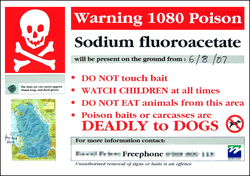Definify.com
Webster 1913 Edition
Inde
Inde
,Definition 2026
Inde
inde
inde
Latin
Etymology
Possibly from a declination of is (“that”) and a demonstrative suffix -de.
Pronunciation
(Classical) IPA(key): /ˈin.de/, [ˈɪn.dɛ]
Adverb
inde (not comparable)
- thence, from there (in space)
- 61 CE – c. 112 CE, Pliny the Younger, Epistulae 5
-
Inde etiam rosas effert, umbrarumque frigus non ingrato sole distinguit. Finito vario illo multiplicique curvamine recto limiti redditur nec huic uni, nam viae plures intercedentibus buxis dividuntur.[1][2]
- Farther on, there are roses too along the path, and the cool shade is pleasantly alternated with sunshine. Having passed through these manifold winding alleys, the path resumes a straight course, and at the same time divides into several tracks, separated by box hedges.[3]
-
Inde etiam rosas effert, umbrarumque frigus non ingrato sole distinguit. Finito vario illo multiplicique curvamine recto limiti redditur nec huic uni, nam viae plures intercedentibus buxis dividuntur.[1][2]
-
- thenceforth (in time)
- since (eccl.)
- Munificentissimis Deus, Bull (Pope Pius XII), Latin version
- Maxime autem illud memorandum est, inde a saeculo secundo Mariam Virginem a Sanctis Patribus veluti novam Hevam proponi novo Adae... [4]
- Munificentissimis Deus, Bull (Pope Pius XII), Latin version
Derived terms
Descendants
- Catalan: en
- Franco-Provençal: en, cen (from *ecce inde)
- French: en
- Italian: ne
- Old Portuguese: ende
- Spanish: ende
See also
References
- inde in Charlton T. Lewis and Charles Short (1879) A Latin Dictionary, Oxford: Clarendon Press
- inde in Charlton T. Lewis (1891) An Elementary Latin Dictionary, New York: Harper & Brothers
- Félix Gaffiot (1934), “inde”, in Dictionnaire Illustré Latin-Français, Paris: Hachette.
- Meissner, Carl; Auden, Henry William (1894) Latin Phrase-Book, London: Macmillan and Co.
- from this it appears, is apparent: inde patet, appāret
- from this it appears, is apparent: inde patet, appāret
- ↑ Pliny text, Latin version
- ↑ Pliny text, Latin version 2
- ↑ Pliny text, English translation 1
- ↑ Munificentissimis Deus, Pope Pius XII, Latin version
Latvian

Etymology
A 20th-century neologism, introduced in the Scientific Terminology Dictionary (Riga, 1922) to replace a previous Germanism, ģifts. The word was coined by shortening the (old-fashioned, dialectal) word indeve (“illness, disease; bad disposition; evil spirit; poison”), which J. Endzelīns considered either an old Curonian term or a borrowing from Lithuanian (cf. Lithuanian dialectal indėvė (“poison; evil, evil spirit”)), perhaps formed from a prefix *in- (Latvian ie-) and the verb dot (“to give”) or dēt (“to lay (eggs); orig. to put”). The meaning evolution would be similar to that of German Gift: from “something given, put (in)” to “poison.” Another possiblity, suggested by the “evil spirit” meaning of the Lithuanian cognate (also attested in older Latvian sources as a name for the devil), is that indeve might come from *in- (“negative”) + dievs, i.e. “no-god” > “evil, evil spirit” (cf. similarly formed nedievs). It is also possible that two similar words, meaning “disease” and “evil spirit,” became homophonous and merged as indeve. It has also been suggested that Middle Dutch inde (“end; death”), inden (“to end life, to die”) could also have influenced indeve, given the strong presence of Dutch sailors and craftsmen in the times of the old Duchy of Courland (1561-1726).[1]
Pronunciation
- IPA(key): [īndɛ]
Noun
inde f (5th declension)
- poison, venom (substance with deleterious or even fatal effects on living organisms)
- bišu inde ― bee venom
- čūsku inde ― snake venom
- indes koncentrācija ― poison concentration
- čūsku indes zobi ― snake venom teeth
- indes dziedzeri ― venom glands
- sagatavot indi ― to prepare poison
- neitralizēt indi ― to neutralize poison
- mūsdienu zinātnei labi zināma ļoti iedarbīga inde: kālija cianīds ― a very effective poison is well known to modern science: potassium cyanide
- tabakas lapas satur nikotīnu, kas ir stipra sirds inde ― the tobacco leaf contains nicotine, which is a strong poison for the heart
- (figuratively) poison (something with bad effects on people)
- viņš nestrīdas pretim... bet šaubu un neticības indi pa kādam pilienam iepilina katrā sarunā ― he did not counterargue... but he added doubt and drops of the poison of unbelief in every conversation
Declension
Derived terms
References
- ↑ Karulis, Konstantīns (1992), “inde”, in Latviešu Etimoloģijas Vārdnīca (in Latvian), Rīga: AVOTS, ISBN 9984-700-12-7